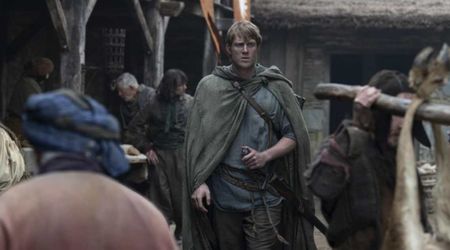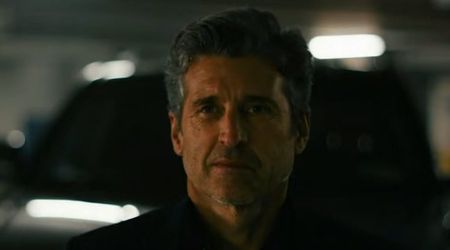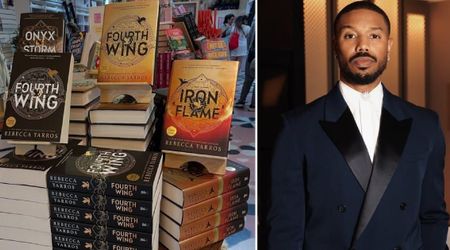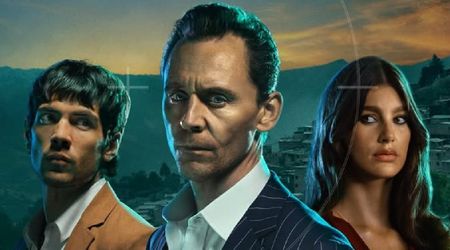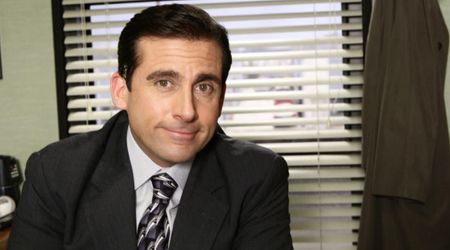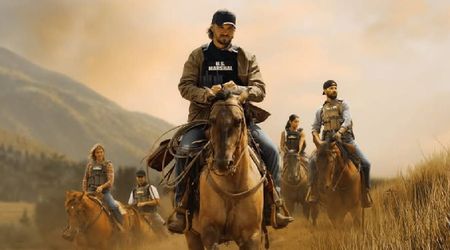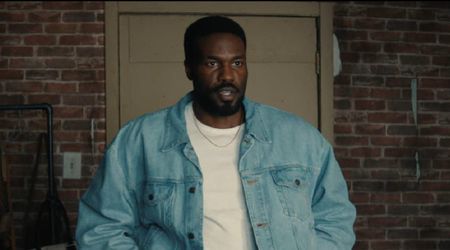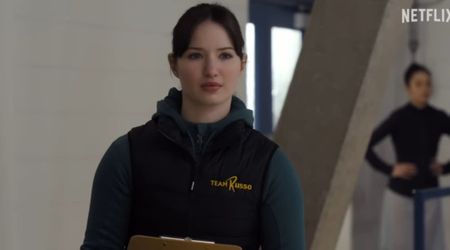'Gangs of London': The true story of the PKK, the Kurdish organization Lale is willing to sacrifice everything for

When gory bloodbath isn't taking center stage on Sky's 'Gangs of London', loyalty and honor in one's cause becomes the common thread tying everything together. And while Sean Wallace's thirst to avenge his father's murder is the central portrayal of loyalty in the plot, his business partner turned ally Lale's fight for her land and its people is no less crucial. Lale has been described as a former PKK militant who imports and oversees the selling of heroin in parts of London.
The revenue earned is sent back to Lale's motherland, where war is rife and flying bullets and spilled blood are still the order of the day. Her people's pain and suffering drive Lale to a point of cold-bloodedness where she's willing to sacrifice anything and everything for the cause.
And it brings to mind the true origins of the Partiya Karkerên Kurdistanê, or the Kurdistan Workers' Party, whose rebellion against the Turkish government has now been branded terrorism by many countries in the world.
Lale is from Kurdistan - a region overlapping the borders of Turkey and Iraq and whose people have been persecuted by the Turkish state for decades. Lale's allegiance lies with the PKK - the real-life Kurdish militant and political organization fighting for the rights of the Kurds. Just as Lale's story reeks of blood and fire, with her husband dying in a war with the Turks on the show, in real life, the PKK has been involved in armed conflict with the Turkish state since 1984 as well.
But the Kurdish rebellion predates the PKK, and started way back in the 1920s and 1930s. Turkish authorities forcefully put these down, before declaring Kurdistan a closed military area where foreigners were banned between 1925 and 1965 - around the same time all things Kurdish were outlawed.
The use of the Kurdish language, dress, folklore, and names were all banned by the Turkish state. Even words like 'Kurds' and 'Kurdistan' were prohibited. When people who spoke, published, or sang in Kurdish were arrested and imprisoned, the PKK was formed to mirror the outrage amongst Turkey's ethnic minority; their rebellion, an effort to establish their own linguistic, cultural, and political rights.

History details the foundation of the PKK all the way back to November 1978. Birthed by a group of Kurdish students in the village of Fis, the PKK's then-leader was Abdullah Öcalan. Soon Öcalan was elected the general secretary of the party, with Hayri Durmuş, Kemal Pir, Cemîl Bayik, Kesire Yildirim, Mazlum Doĝan, Mehmet Karasungur, and Şahin Dönmez all designated members of the Central Committee.
Since announcing its existence in 1979, the group's initial aim was an independent communist Kurdistan. Their qualms were against the oppression of Kurds in Turkey, especially surrounding the prohibitions. After a 1980 coup, when the Kurds' language was officially prohibited in public and private life, the PKK finally announced their official uprising on August 15, 1984.
On one hand, all existence of the Kurds and Kurdistan were being wiped off from dictionaries and history books, their new identity being Mountain Turks. On the other hand, several provinces were placed under martial law in a response to the PKK.
Soon sprung a guerilla war that panned over the rest of the 80s, and the 90s. With the total number of security forces involved in southeastern Turkey being 200,000, the PKK's conflict emerged as the largest counter-insurgency in the Middle East. Countrysides evacuated, thousands of Kurdish habited villages destroyed, and innumerable extra-judicial summary executions later, more than 37,000 people died - the majority being Kurdish civilians killed by Turkish security forces.
Hundreds of thousands had to leave their home too, in the middle of a war that saw only two ceasefires: from 1999 to 2004 and again from 2013 to 2015.
Both the ceasefires' initial aim was achieving an independent Kurdish state. When Öcalan was captured in 1999 things dimmed down as the European Union showed lesser tolerance for Kurdish cultural activities. In 2016, things started heating up when the PKK joined the Peoples' United Revolutionary Movement - an alliance of leftist, revolutionary socialist and communist Turkish and Kurdish organizations in Turkey whose goal is the overthrow of the "fascist" AKP Turkish government run by Recep Tayyip Erdoğan.
But they still continue to be a designated terrorist organization by Turkey, the US, the European Union, Australia, and Japan. Some political violence is still believed to be going on amidst them, with the Turkish–Iraqi border region remaining particularly tense.

